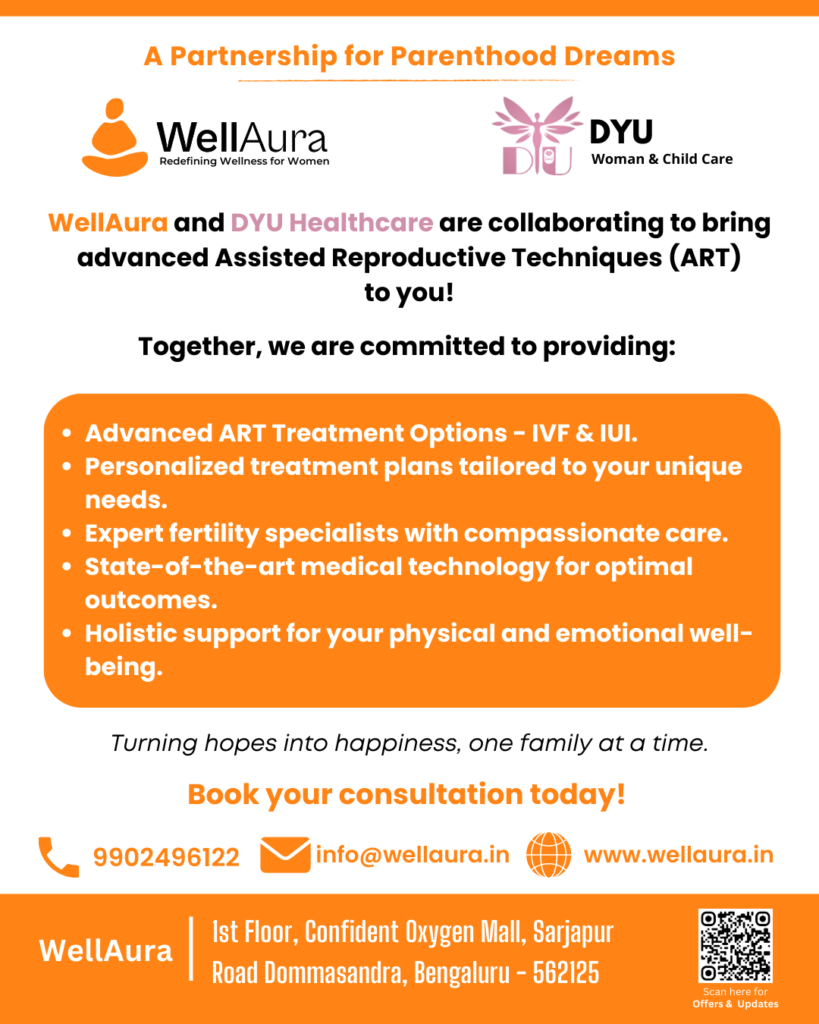If you’re considering pregnancy after 35, it’s essential to understand what it takes to have a healthy pregnancy. While many people choose to start families later in life, some may face challenges, while others may not. Although advanced maternal age can present risks, such as a decline in fertility and increased chances of complications, the good news is that many women with little medical support have successfully conceived and delivered healthy babies in their 30s and 40s.
While this age is commonly considered a milestone for fertility, it’s essential to approach it with knowledge, preparation, and the right mindset. Understanding what to expect and how to prepare can empower you to navigate this phase confidently. Keep reading to learn more about the proactive steps you can take to increase your fertility after 35 for a healthy pregnancy.
Fertility After 35: The Age Factor
At birth, a woman’s ovaries contain the maximum number of eggs they will ever have, and as she ages, the egg count and quality decline. When a woman reaches 35, subtle but significant changes occur in the body and reproductive system. In fact, women experience a significant reduction in fecundity and an increase in the probability of infertility in their late thirties. Research found that compared to women ages 30–31, fecundability was reduced by 14% in women 34–35.
Even though many women conceive naturally in their mid-30s, it’s essential to understand how these biological changes can impact the pregnancy. Also, with age, the risk of chromosomal abnormalities, such as Down syndrome, increases due to the decline in egg quality. This can affect fertility and increase the chances of miscarriage or complications. However, with proper care, many women over 35 still have healthy pregnancies.
The Fertility Reality: What Can You Expect When Trying to Conceive After 35
Trying to conceive after 35 can present some challenges. Getting pregnant in your late 30s and early 40s may require more effort or take longer.
Longer Time to Conceive
The decline in eggs and their quality leads to longer conception times. Fertility after 35 dramatically drops, and it may take several months or more to conceive.
Increased Risk of Miscarriage
The risk of miscarriage also increases with age, partly due to the possibility of chromosomal abnormalities in eggs as they age that can cause early pregnancy loss. The chances of miscarriage are higher for women over 35 compared to younger women.
Potential Health Issues
Women over 35 are also at higher risk of certain health complications that can affect fertility, like endometriosis, fibroids, or PCOS. These can interfere with the reproductive system, making it tough to conceive. But with proper medical guidance and help, women successfully overcome these challenges and go on to have healthy pregnancies.
How to Prepare for Fertility After 35
If you hope to get pregnant, taking mindful steps to improve your fertility after 35 can lead to positive outcomes. While age does come with challenges, improving your reproductive health is possible with the right approach like the following:
- Healthy Lifestyle: Your body thrives when you nourish it with vital nutrients, vitamins, and minerals. Opt for a balanced diet with regular moderate exercise. It will help with weight management and improve blood circulation to your reproductive organs.
- Stress Management: Stress interferes with your hormonal rhythm, can delay ovulation, and makes conceiving difficult. Incorporate yoga, meditation, or deep-breathing exercises into your routine to manage stress. Consider counseling or therapy for emotional support and to reduce anxiety.
- Track your Cycle: Tracking ovulation helps you determine the best days to try for conception. Use apps or ovulation predictor kits to gain insight into your fertile window. This allows you to sync intercourse with the right moment.
- Prenatal Vitamins: Start taking prenatal vitamins daily, mainly folic acid, as they support reproductive health and lower the risk of neural tube defects in a developing fetus.
- Avoid Toxins: Ditch smoking, alcohol, and all kinds of environmental toxins, as these can negatively impact egg quality and sperm health—Minimise exposure to household chemicals, pesticides and other pollutants to give your fertility the best shot.
When to Seek Help: Fertility Testing and Consulting a Specialist
If women over 35 have been trying to conceive for six months without success, it’s the right time to get medical help. Fertility indeed naturally declines with age, making conception more challenging. Early intervention helps identify potential issues that could improve the chances of a successful pregnancy.
Fertility Test
Ovarian reserve testing helps assess the number and quality of your eggs. Ultrasound scans can determine the health of your ovaries and uterus, while sperm analysis is recommended for your partner to ensure sperm health.
Treatment Options
If tests result in fertility challenges, there are several treatment options for women over 35. Medications for stimulating ovulation help with conception. For some cases, Assisted Reproductive Technology (ART) may be recommended.
Best Treatment Options Supporting Fertility After 35
There are several fertility treatments available that offer hope for women who have struggled to conceive after multiple unsuccessful attempts. However, each treatment varies but provides options to overcome age-related fertility challenges. Assisted Reproductive Technology (ART) can be the best option to support fertility after 35. It includes advanced medical techniques to help individuals and couples overcome fertility challenges. Some options of ART include:

Intrauterine Insemination (IUI)
IUI is a less invasive treatment for fertility after 35, wherein sperm is directly placed into the uterus during ovulation. The procedure increases the chance of sperm reaching the egg and eventually conceiving.
In Vitro Fertilization (IVF)
IVF is a complex and more advanced option where eggs are retrieved from the ovaries, fertilized in a lab, and then the embryos are implanted into the uterus. This procedure offers a higher success rate, mainly for women with extreme fertility issues like blocked fallopian tubes or low egg quality. It may also involve genetic screening for embryos to identify the healthiest options.
Egg Freezing
Egg Freezing is becoming popular. This treatment is for women who are not ready to conceive yet but want to preserve fertility at a younger age. Egg freezing lets women freeze their eggs early in life and use them when ready to start a family.
Donor Eggs or Sperm
Donor eggs allow women to experience the joys of pregnancy. This process involves using eggs from a healthy younger woman during an IVF procedure. Women who have failed IVF attempts using their eggs or have low egg counts can benefit from this method. They can also consider using donor sperm if needed.
How WellAura Supports With Fertility After 35
Fertility after 35 can be challenging and brings emotional strain, stress, and moments of disappointment. During this time, leaning on support systems such as your partner, family, or friends is crucial—they provide encouragement, understanding, and a safe space to share your journey.
At WellAura, we recognize these challenges and specialize in offering compassionate, comprehensive care for women trying to conceive later in life. Here’s how we can support you:
#1. Comprehensive Fertility Assessments
We begin with a thorough evaluation of your reproductive health to identify potential barriers to conception. Our fertility assessments include:
- Ovarian Reserve Testing: To assess egg quality and quantity through tests like AMH levels and ultrasounds.
- Hormonal Profiling: Analyzing key hormones like FSH, LH, and estrogen to evaluate ovulation and reproductive health.
- Diagnostic Imaging: Using advanced ultrasound technology to detect conditions like fibroids, cysts, or blocked fallopian tubes.
- Partner Assessments: Offering semen analysis and other tests to ensure a complete understanding of the couple’s fertility.
#2. Tailored Treatment Plans
We recognize that no two fertility journeys are the same. That’s why we design personalized treatment strategies that address your specific needs and concerns. Our treatments include:
- IVF (In Vitro Fertilization): A highly effective technique where eggs are fertilized outside the body and transferred to the uterus.
- IUI (Intrauterine Insemination): A minimally invasive procedure where sperm is directly placed into the uterus to increase fertilization chances.
- Lifestyle Recommendations: We integrate healthy practices into your treatment plan to improve fertility health.
#3. Holistic Wellness Support
We believe that fertility care extends beyond medical interventions. At WellAura, we provide:
- Nutritional Counseling: Our experts create fertility-friendly meal plans with essential vitamins, minerals, and nutrients to support reproductive health.
- Fitness Guidance: Moderate and tailored exercise routines to support hormonal balance and overall well-being.
#4. Compassionate and Supportive Care
At WellAura, your well-being is our priority. We have a warm and welcoming environment where you can feel heard and valued. Our team is here to:
- Address all your questions and concerns with patience, care, and empathy.
- Guide you through every step of the process with clear communication.
- Celebrate your milestones, no matter how small, and offer unwavering encouragement.
#5. Mental Health and Emotional Support
At WellAura, we understand that the journey to conceive, particularly after 35, can be emotionally and mentally challenging. That’s why we provide specialized mental health support as an integral part of our fertility care. Here’s how we support you:
- Individual Counseling: Our counselors work with you to address stress, anxiety, or frustration, helping you develop coping strategies to stay positive and resilient.
- Couples Therapy: Fertility challenges can sometimes impact relationships. We provide a safe space for couples to communicate and strengthen their partnership openly during this journey.
- Psychiatric Support: For those experiencing more complex emotional challenges, our psychiatrist is available to offer expert care and, if needed, medication to ensure mental well-being.
- Mind-Body Techniques: Incorporating mindfulness, relaxation exercises, and stress management tips and techniques to help you stay calm and focused.
In a Nutshell
Fertility after 35 may come with unique challenges, but with the right preparation and support, it’s possible. Whether you’re planning to start your journey now or considering fertility preservation, taking proactive steps can make all the difference.
Let WellAura be your partner in creating the family you’ve always dreamed of. With cutting-edge treatments, holistic care, and a dedicated team by your side, we’re committed to turning your hopes into a beautiful reality.
We are here to guide and support you every step of the way. Let’s work together to make your dreams of parenthood a reality. Ready to take the next step? Contact WellAura today to schedule your consultation!
